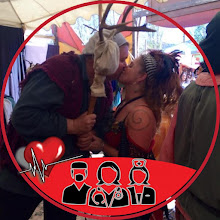
Over at Grognardia this week, James M. blogged about keeping track of time in his classic D&D games for Dwimmermount. As James is trying to evoke the earliest form of play, he goes with all the big tropes, from 10 foot poles to hirelings and henchmen. The very much wargame inspired methods of time tracking in OD&D include specific periods of time that it takes to explore a hex in the wilderness, or explore a dungeon level.
I scratch my head when I think about why anyone would need anything but their own perceptions. OK, maybe I am in tune with my long-time gameworld more than many others, but I think anyone can figure out that “OK, it has been a couple of hours so it’s midnight now”. You know, if a thief picks a lock then it probably took just a minute. If he fails and needs a second roll, then have an hour go by. I think that everyone should be able to judge the time passages no sweat, and the only major consideration is how long the players want to set up camp for the night.
Dungeon exploring may be more difficult than land travel. I mean, everyone pretty much knows a man can walk 20-30 miles in a day, and a horse at a steady pace might take you 50-60. But those original editions, again, go the wargame inspired route of things taking specific periods of time. The book might tell you that it takes a half hour to search a 10’ section of wall for a secret door, or that searching a large chamber takes so many hours. But why the need for such precision? I know we ultimately have to know a day goes by so Joe Fighter can get a hit point back (give me a break, most PC’s have fairly cheap access to clerics and potions, so what fighter lays around for two weeks trying to heal those 14 points?). Yawn. Let’s face it, precision is not always fun (why I was not a big wargame fan).
Take it from me, 120 years of player continuity has gone by in my game world. Tracking time is no big deal. Have a calendar, have a few holidays, and you are set. Do it all in your head. Make a slightly imprecise decision. You’ll have more time for the stuff that is really fun!
Let me admit now that I do take time seriously in the game. Having a little bit of perception of it goes a long way in bringing color to your world. You don’t need a chart or a table, you can figure out the basics of “little time,” the day to day activities of the players in your head. If a player complains because it suddenly matters, then retcon things slightly to make up for it. No biggie.
Much to the chagrin of some of my players over the years, I love to have time go by. It seems more real, and it adds a lot of gravitas to your world. In between campaigns, I like characters to be doing something else for a few months here and there. Settle down a bit, open a business. No end game there though, when the call of adventure goes down, they get sucked back in.
I’m notorious for having years go by in my games when a group ends. Whether some of the same people or almost all new, I’ve had maybe 6 or 7 major gaming groups since around 1990. If it has been a year or so since I ran a campaign, I like to have anywhere from 1-3 years go by in the game world. Gives me a sense of cosmic motion. In this new campaign of mine, started several years since my last active gaming period, I went ahead and had five solid years go by. Yep, my game world is getting old (hence, 120 years of character continuity). It just feels like the world has more weight if I do it this way. Hopefully this new group will last a year or two though. I’m not in a hurry to have another fiver go by.
















I like the idea of allowing PCs to immerse themselves in a setting via businesses, relationships, etc. Very cool.
ReplyDeleteWhere it can become vital, as I'm learning, is if you have two or more groups in the same campaign running kinda-sort parallel in time. They frequently leapfrog each other, and since they're based in the same city, knowing who is where when can be important. But it's also very cool to see the two groups react differently to the same NPCs, or to hear about each other's exploits.
ReplyDelete